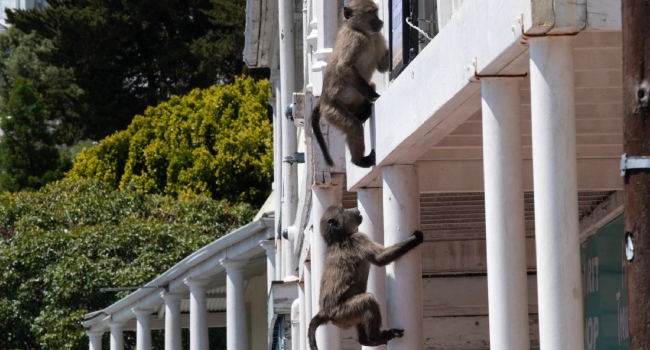ON a sunny afternoon in Cape Town’s seaside village of Simon’s Town, three young chacma baboons cause a commotion, clambering on roofs, jumping between buildings, and swinging on the gutters.
Enchanted tourists stop to photograph the troop crossing the road. Locals are less impressed: it’s a daily scene in the charming village nestled between the Atlantic Ocean and Table Mountain National Park.
About 500 chacma baboons — among the largest monkey species and weighing up to 40 kilos (88 pounds) — roam the peninsula south of Cape Town, says the South African National Biodiversity Institute.
And as human development pushes up the mountain into their natural habitat, the animals are increasingly entering plush properties to forage in gardens and take the pickings from the bins. Some manage to sneak into houses where they can wreak havoc.
Many locals are fond of the creatures, giving them pet names and following their daily adventures on social media.
But others are increasingly frustrated.
“They’ve become so bold now. They’re more domesticated than they should be,” said Duncan Low, 60, who runs an ice cream shop.
The intruders have even started raiding kitchens and grabbing food from plates in restaurants. “They’re on a sugar and fast-food rush,” Low said.
In 2021, the city put down a notorious alpha-male monkey who had terrorised residents with more than 40 raids for food in rubbish bins, from lawns and porches, sometimes entering homes while people were inside.
Tension between humans and baboons is “the highest it’s ever been”, said ecologist Justin O’Riain, who directs the Institute for Communities and Wildlife in Africa at the University of Cape Town.
A baboon on the edge of a wild and an urban area is “the most difficult animal in the world to manage”, O’Riain said.
“They are strong, they can climb… and they can learn from each other: there’s no landscape that they can’t conquer.”
As human settlement of the Cape has expanded, the baboons have been “pushed higher and higher up the mountain” where foraging conditions are harder, O’Riain added.







